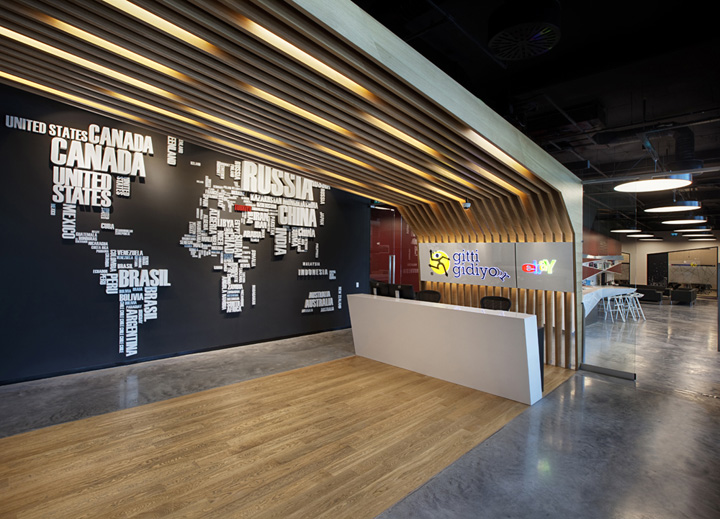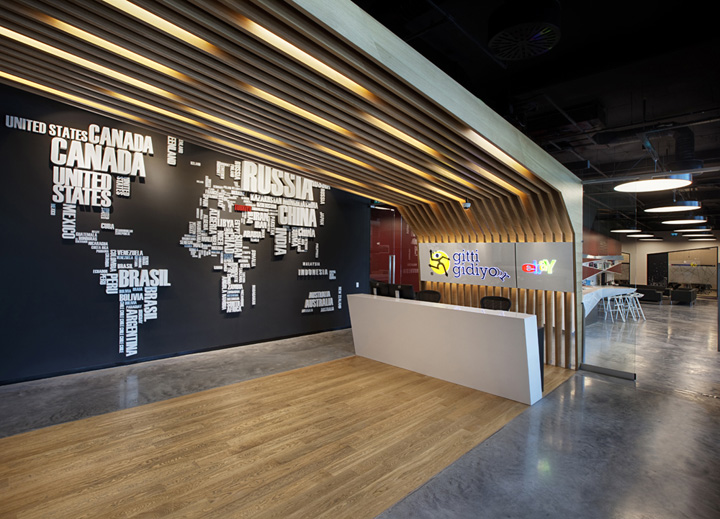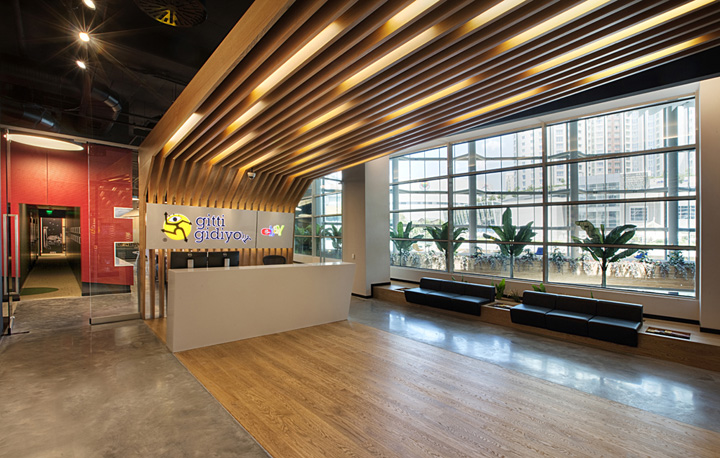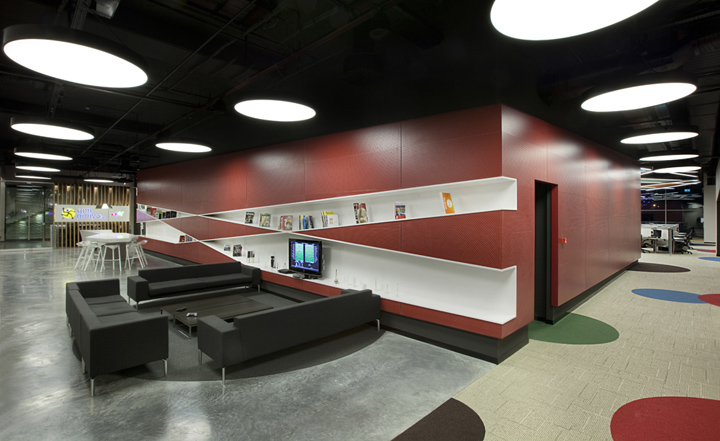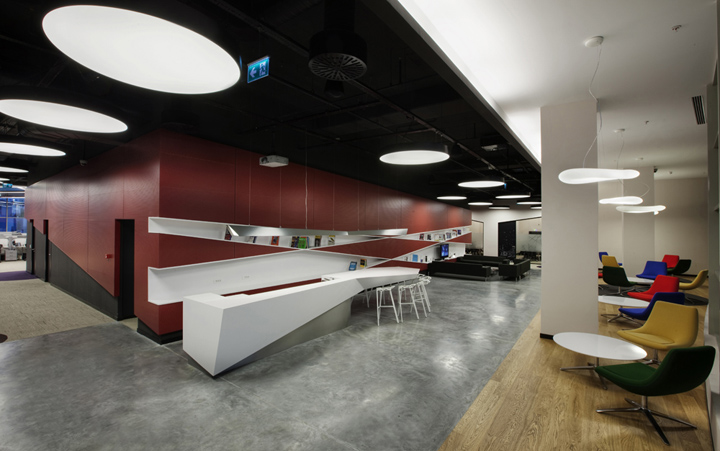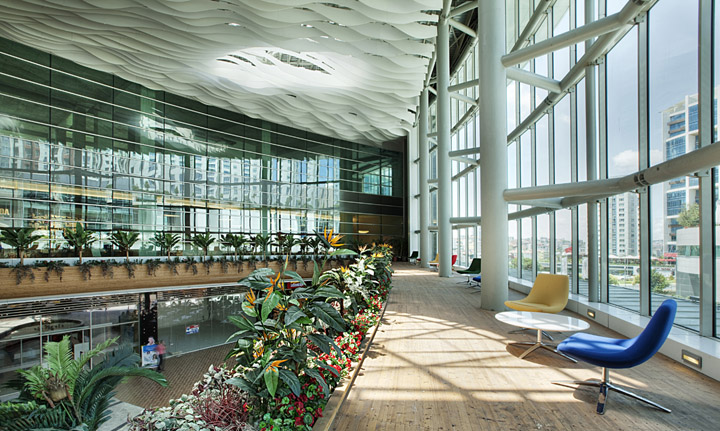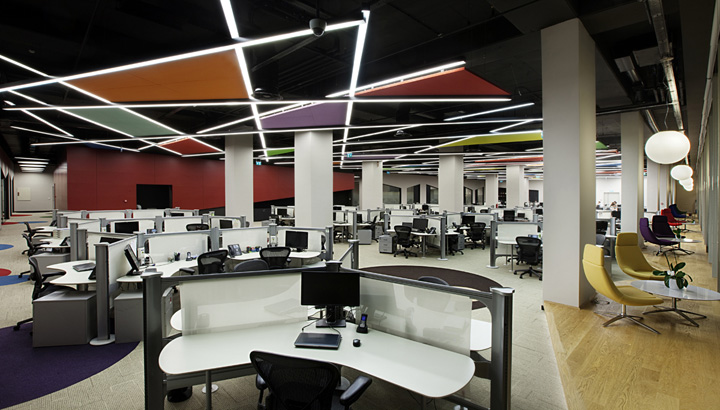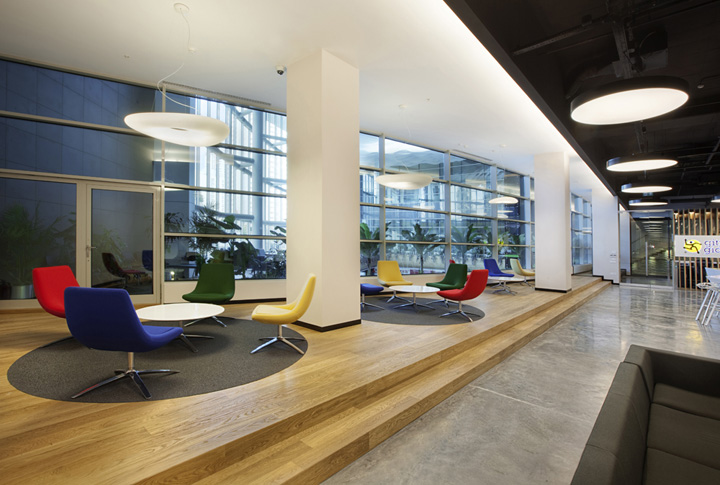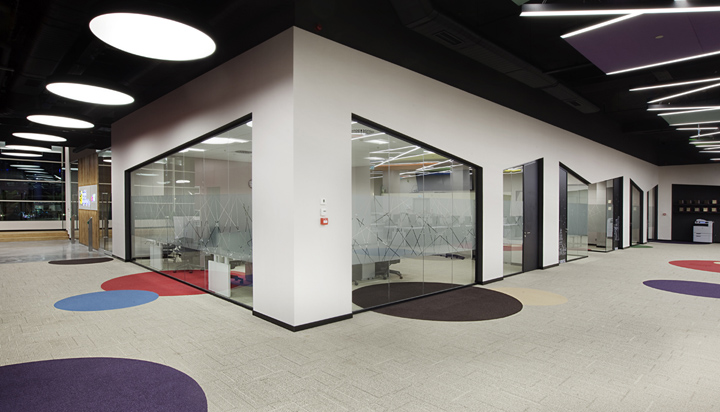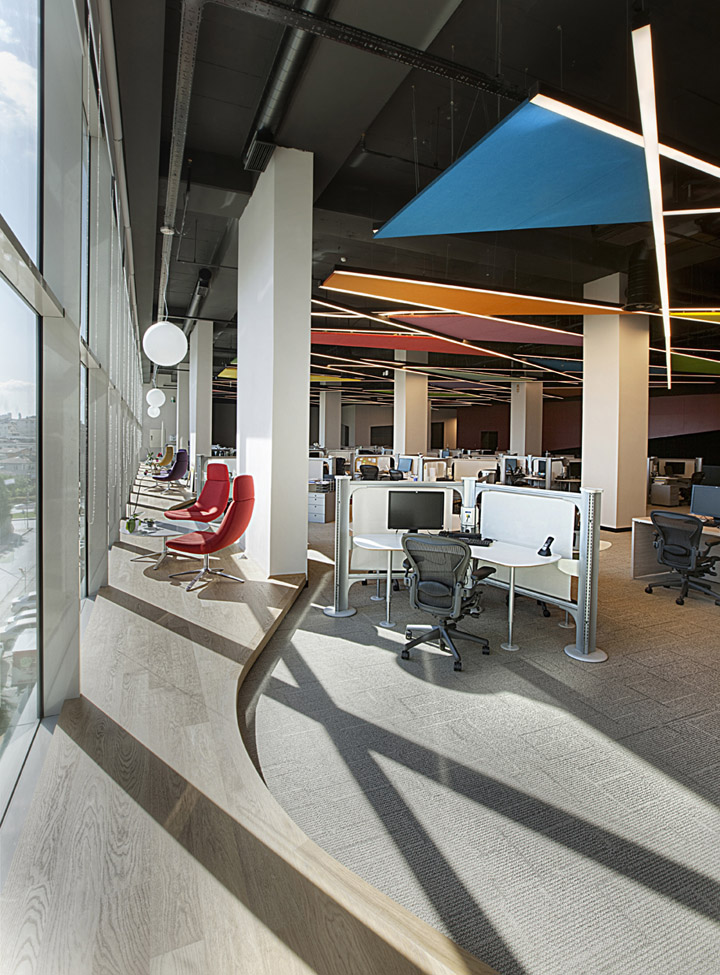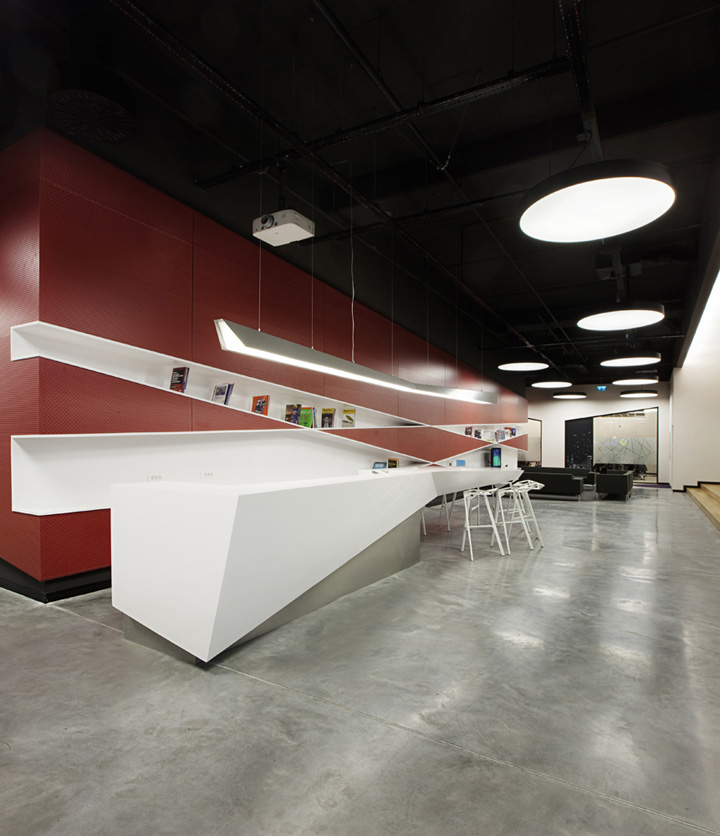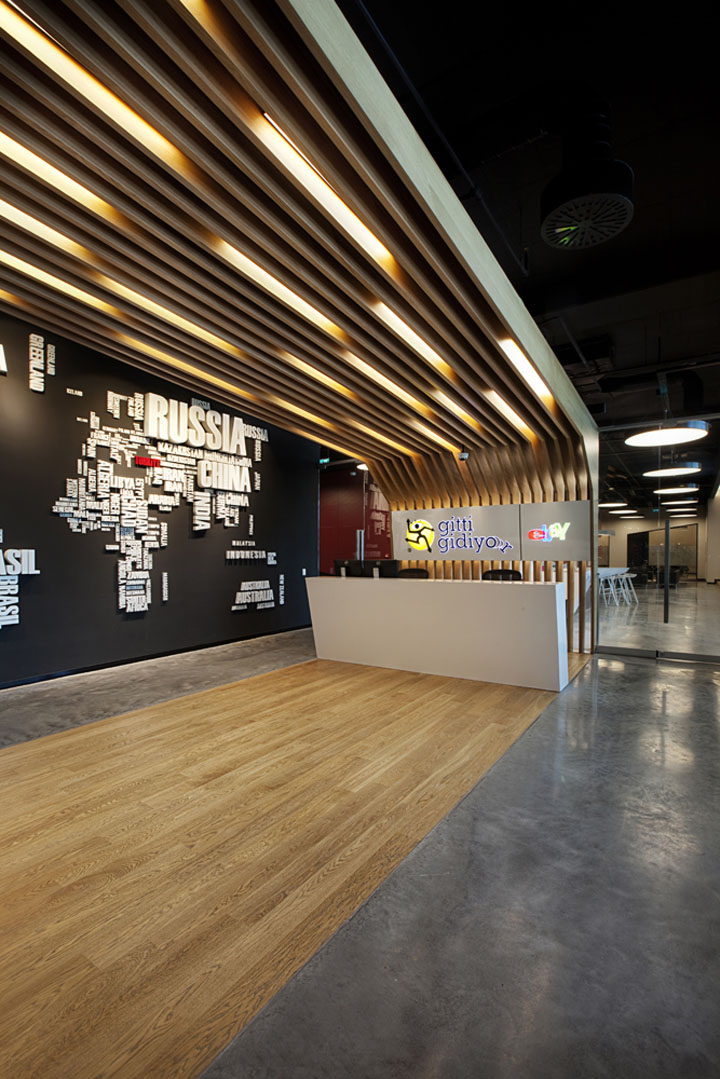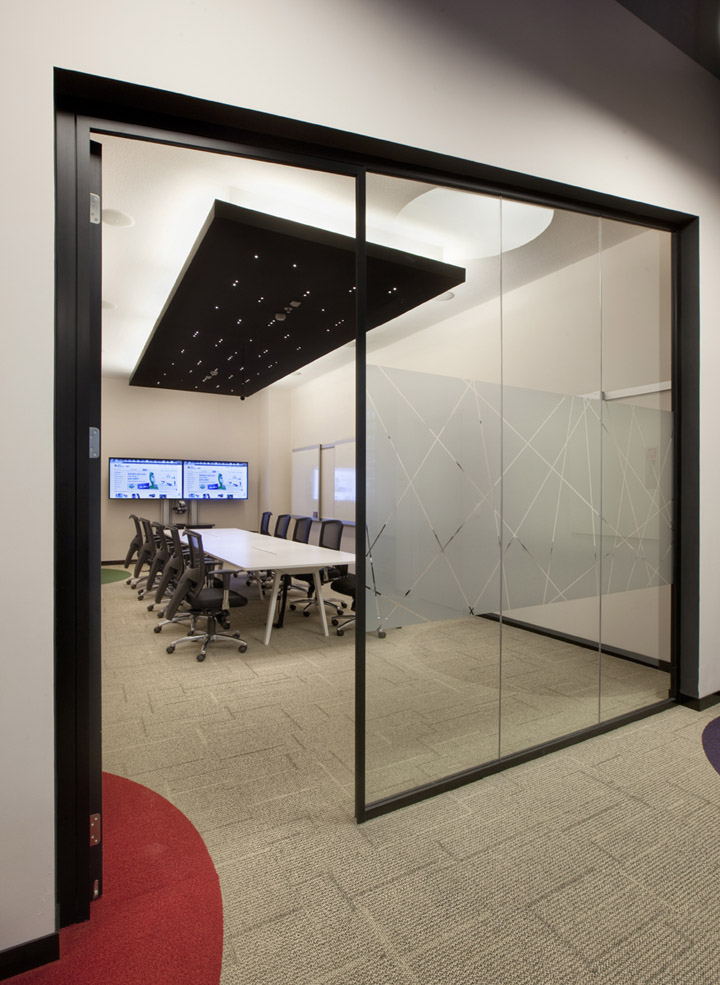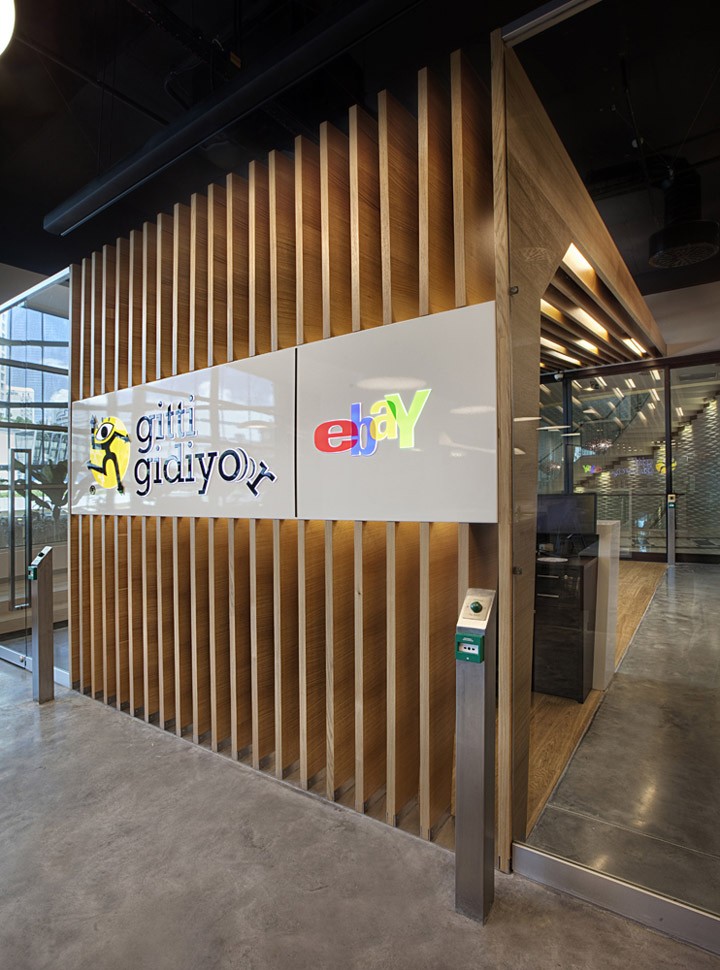The entrance to the Markafoni offices were vast and empty. They were on the outskirts of Istanbul, somewhere even the cab driver could not find. The reception desk was new, the Marcafoni logo behind it still factory polished, and the expanse of warehouse space to left of it blocked only with a few bushes. The company’s logistics team had moved out less than two weeks before, and the all the emptiness—it felt like acres of it—was to be converted to office space for Markafoni and its subsesidiaries. The building smelled like ambition.
The man driving the operation was Sina Afra, a german educated 44 year old that had been managing director of Ebay Turkey. He founded the fashion flash sales company in 2010, and it has quickly become the largest ecommerce site in Turkey, with 8 subsidiaries that operate all over the Black Sea region. Markafoni alone sells upwards of 600,000 articles a month.
The company is sitting on top of one of the fastest growing ecommerce markets in the world. Online sales make up only 1.5% of the Turkish retail market, according to Mr. Afra, but he predicts that there will rise to 6 or 7 percent in the next four years. But they are far from the only ones trying to get at the market.
“Turkey is a country of digital Darwinism,” said Sina, referring to the intense competition for market share in each tech vertical.
70 other flash sales sites have sprung up since 2010, and 150 groupon clones. A visit to the Startup Factory, Istanbul’s only incubator, yielded startups cloning everything from Quirky to Talkbin. Almost all of them are doomed to failure before ever getting out of Beta. Almost none had an original idea.
The reason is that despite a city of 17 million people, the angel community is smaller than Princeton’s crew team, and about as tight knit. “There are about 20 serious angels, and 1000 qualified startups,” said Emre Kurttepeli, founder of Galatta Business Angels and MyNet, Turkey’s largest internet property. The numbers are indeed a bit scary for someone trying to break into the tech industry. “There have been less than fifty major deals made,” Cem Sertoglu, on of Turkey’s leading VC’s, told me. Even if you do get an investment—it’s expensive. Emre estimated that a 500,000 dollar investment would buy about 30% equity stake in an angel round. But getting an investment is hard. “Startups will talk to anyone with money,” he said emphatically.
At the Startup Factory, Istanbul’s leading incubator, startups expressed their frustration. “It’s really difficult to get investors. They’re like banks, they want a proven idea,” said Dilfer Nasir, co-founder of TinkFabrik, a crowd-sourced manufacturing site. TinkFabric eventually garnered a small investment from a large Turkish Multinational. “Entrepreneurs have been taken advantage of legally and financially. They often didn’t know their options very well.” said Tugce Ergul, founder of Turkbridge, a nonprofit dedicated to bringing investors to turkey and educating entrepreneurs, and a partner at Startup Labs.
Things are starting to change. Kleiner Perkins and Tiger Global have made some significant investments in B and C rounds. Cem is graduating from investing his and his friend’s private money to founding one of the city’s first VC firms, Young Turk Ventures, which is capitalized at just under 30 million. Major exits have also jumpstarted cash flow and advertised opportunity in the city. The money is flowing in, if only your company can get big enough.
But the problem of the angels persists, despite the fact that conditions seem to be ideal for encouraging investing. Term sheets generally favor the investors, and the long term capital gains tax for Turks is a whopping zero. The problem, according to Emre, is that many Turkish investors don’t know how to value tech companies, and aren’t willing to swallow investing in companies with no revenue.
But even the elite club of twenty angels in Istanbul tend to be risk averse; they stick to proven business models. The costs and risks of real innovation is left to the Californians. “Models are replicated as a matter of course in business. For the internet business, I think the topic is a silly debate,” said Cem. Their attitude has created a tech community with a single goal: to clone startups and sell them to foreign companies who want a foothold in the Turkish market.
It’s a controlled risk model that stands to make a lot of money, given the explosive growth to come in Turkey. It’s even good enough to trigger a small “reverse brain drain,” a phenomenon that everyone I interviewed mentioned with pride. But the truly ambitious will follow easier money that gives them a little more leeway. Until angel capital starts to really flow in Turkey, and angels come who are willing to accept a higher margin of risk, Istanbul will remain short of its potential. It will not found a company that will become a global force, nor one that disrupts an accepted way of doing business. And in an economy of 80 million people whose average age is 29, the potential is enormous.
It is a good time to enter Turkey as an investor. Over the next few years, more companies will become profitable, and a larger amount of the retail economy will move online. Traditional business will start to feel the pinch of their encroached market share enough that they will begin to build their own bids for internet market share, most likely through acquisitions. Nonprofit organizations like Turkbridge, and thought leaders already in the market will bring in more foreign capital as the market booms. In short, the money will come soon enough, and the profits and investors with it. The market will mature. What will not come by itself is a culture of risk taking. Turkey needs a real cowboy investor, someone with enough money and guts to back the crazy ones. Until the cowboy comes, Istanbul will find it tough to attract the best talent, or to create truly disruptive companies that do not have to fight with foreign ones for market share.


